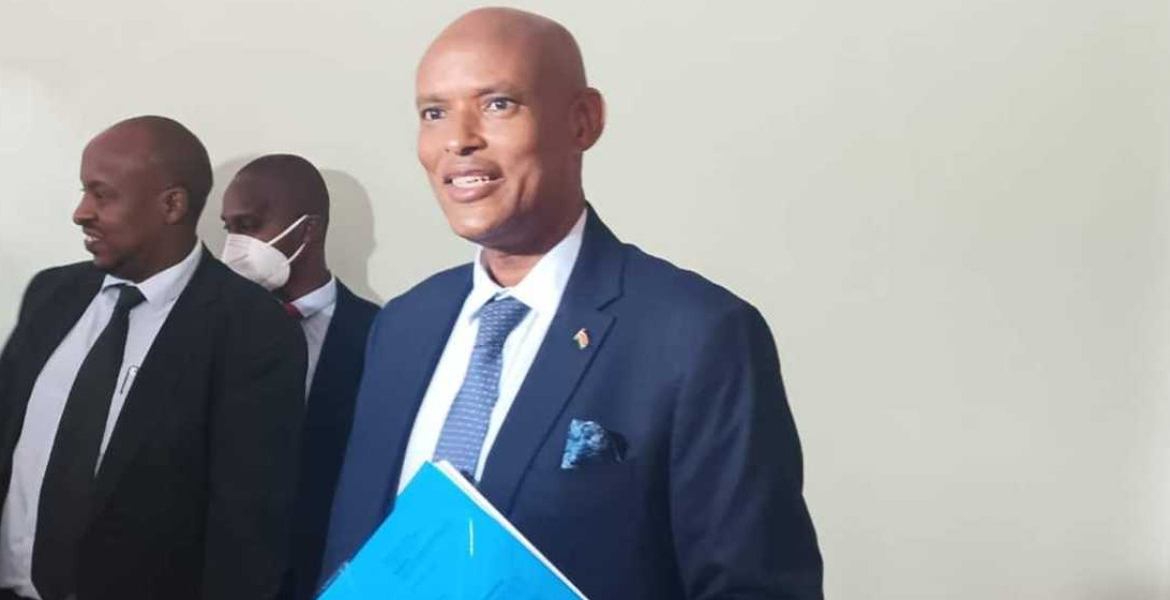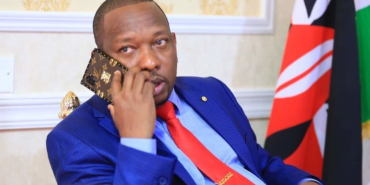Senator Omtatah Demands Arrest of DCI Chief Over Ojwang’s Death

The Director of Criminal Investigations (DCI) Mohammed Amin is under increasing pressure to resign following allegations of a cover-up in the death of blogger Albert Ojwang.
Busia Senator Okiya Omtatah has publicly demanded Amin's resignation and subsequent arrest, citing inconsistencies in official reports surrounding Ojwang's death and accusing the DCI chief of orchestrating a deliberate attempt to mislead the public. The controversy stems from discrepancies between the DCI's timeline of events leading to Ojwang's death and CCTV footage obtained from Mbagathi Hospital. The footage, aired by Citizen TV, indicates that Ojwang was at the hospital as early as 1:35 a.m. on June 8.
This contradicts the DCI's initial statements that Ojwang was still in police custody at the Central Police Station at that time, sparking suspicions about the circumstances of his death. Omtatah, known for his advocacy for government accountability, has condemned the conflicting reports, characterizing them as evidence of a broader conspiracy. He points to alleged fabrications in the Occurrence Book, misleading medical reports, and attempts to erase crucial evidence as indicators of a coordinated effort to conceal the truth.
"You don't lie to a nation and walk free," Omtatah says, calling for immediate action against those involved in the alleged cover-up.
His remarks have amplified public outrage over the handling of the case, with many Kenyans demanding transparency and justice from law enforcement agencies.
Further complicating the matter is the arrest of a technician responsible for installing CCTV cameras at Nairobi's Central Police Station. The technician is accused of tampering with footage related to Ojwang's detention.
According to authorities, the technician was summoned to the station on June 8, the same day Ojwang died, raising concerns about deliberate attempts to erase incriminating evidence. In other news, Nairobi Governor Johnson Sakaja has issued a stern warning against the destruction of city infrastructure during protests. Speaking in Kamagut on June 14, Sakaja condemned the vandalism that accompanied demonstrations over Ojwang's death, arguing that such actions undermine legitimate calls for justice. While acknowledging the public's frustration, Sakaja urged protesters to remain peaceful and avoid damaging public property.
"Even if we are angry, let's not destroy our property. If we must demonstrate, let us do so peacefully," he said.
His sentiments were echoed by Umoja MCA Ronald Mugambi, who lamented the destruction of newly installed streetlights and sanitation infrastructure. National Assembly Majority Leader Kimani Ichung'wah also denounced the violence, warning that the government would not tolerate acts of vandalism disguised as demonstrations.
The demonstrations, which began as a demand for justice for Ojwang, have evolved into a broader movement against police misconduct and government impunity. Protesters argue that Ojwang's death is not an isolated incident but part of a troubling pattern of abuses by law enforcement. The demand for accountability has extended beyond Amin, with calls for the resignation of Deputy Inspector General of Police Eliud Lagat, who was reportedly the complainant in the case that led to Ojwang's arrest.








Comments
Itatubidi turudi nyuma…
Permalink
Itatubidi turudi nyuma halafu tuyachunguze yote yaliyojiri katika kanisa la Kiambaa huko Eldoret 2007-8 na kuwanasa wote waliohusika kuwateketezea wananchi humo kanisani.
Kifo cha Hayati Ndugu yetu X. Ojwang kitafichua uhalifu unaoendelea nchini huku ukiendeshwa na wafanyi kazi wetu ambao tunawalipa na pesa za umma. Yeyote anayepokea mshahara kutoka kwa serikali ajue ya kwamba, yeye ni mtumishi wa umma. Kama hama hataki kuwa na daraja hiyo, aondoke mara moja na kuanzisha kazi zake mwenyewe.
JAMANI TUMECHOKA!
Add new comment